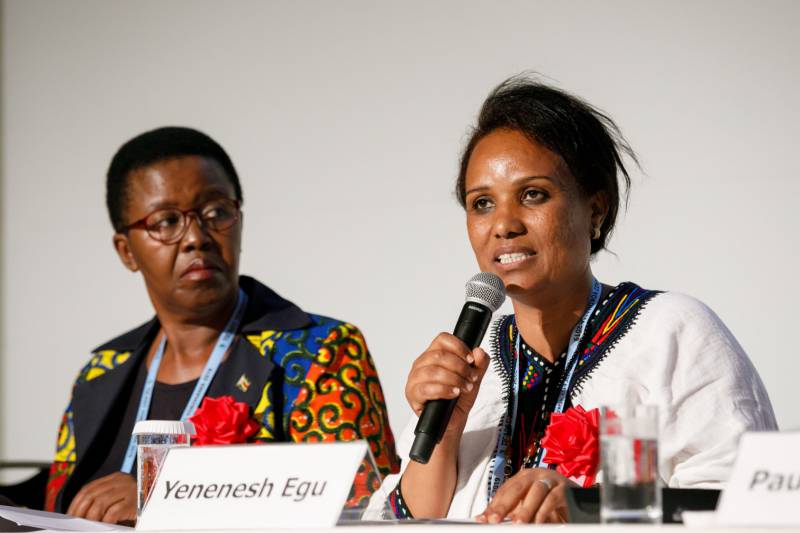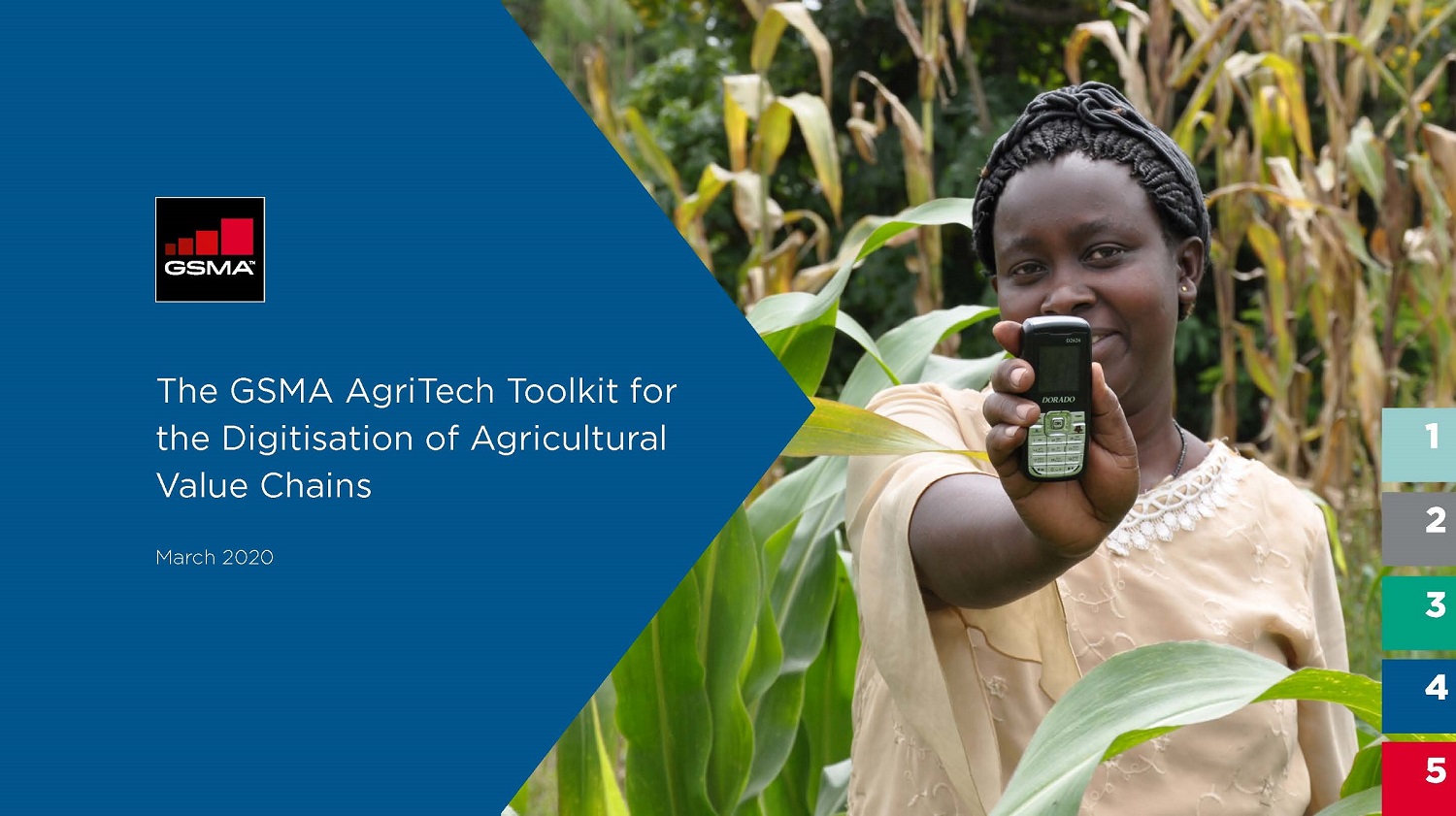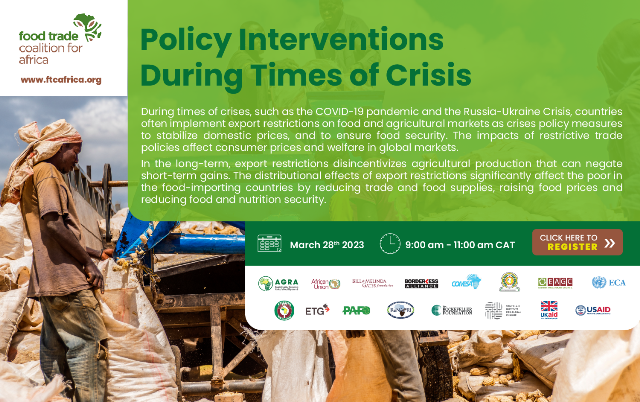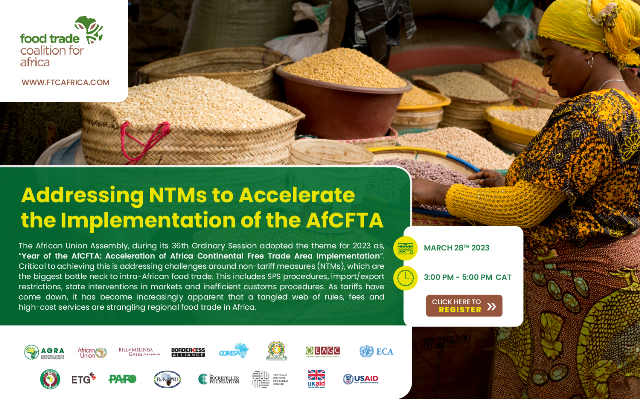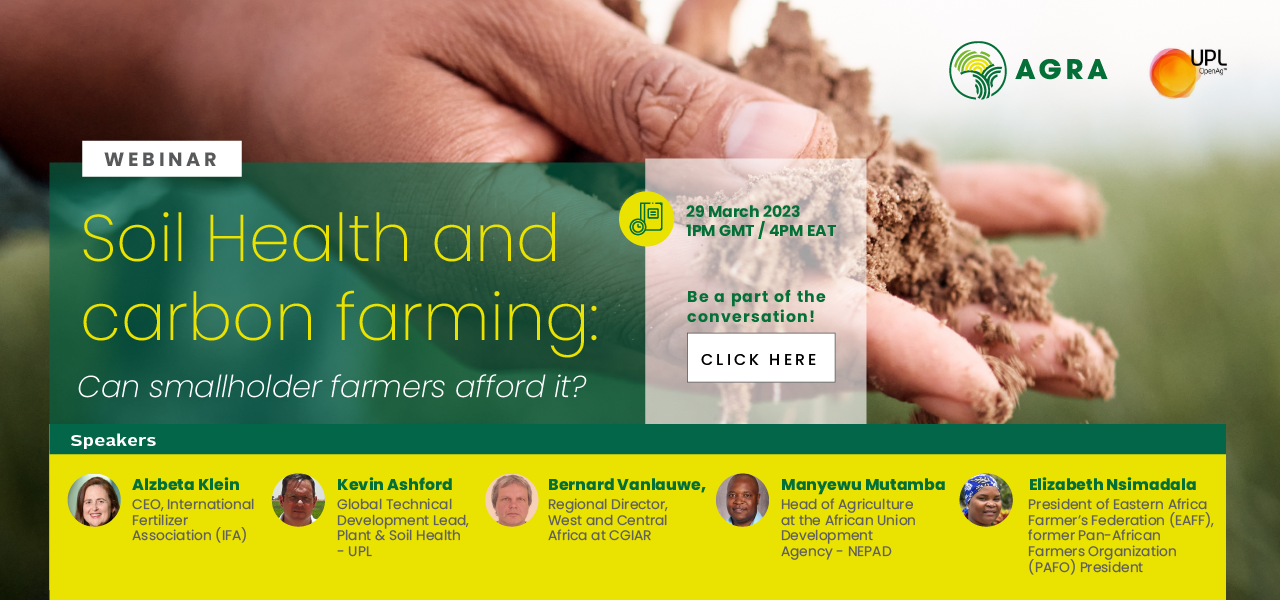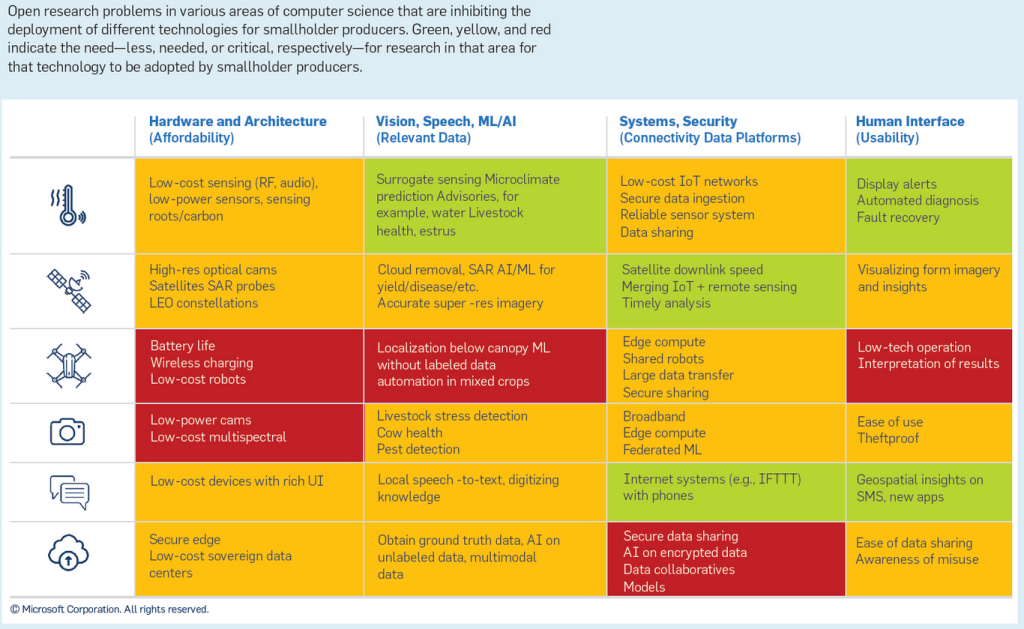- This webinar presented key results and lessons from the GSMA Innovation Fund for the Digitisation of Agricultural Value Chains, an initiative that supported six grantee organisations in designing, developing, testing and scaling commercially viable digital solutions that address smallholder farmer challenges.
- The webinar presented: AgroMall (Nigeria), Dialog (Sri Lanka) Koltiva (Indonesia) and Vodacom (Tanzania)
- 29/03.Soil Health and Carbon Farming. Can smallholder farmers afford it?
- 28/03. Policy Interventions During Times of Crisis
- 28/03. Addressing non-tariff measures NTMs to Accelerate the Implementation of the AfCFTA
- Keynote - Frans Timmermans, Executive Vice President, European Commission
- Inspirational speech - Dr. Jane Goodall, DBE, UN Messenger of Peace, Founder of the Jane Goodall Institute
- Dr. Angelika Hilbeck, Institute for Integrative Biology in the Department of Environmental Systems Science, ETH Zurich
- Inspirational speech - Ranveer Chandra, Managing Director for Research for Industry, and CTO of Agri-Food, Microsoft - How we can use technology to better serve biodiversity?
- This event discussed how the new EU-IFAD partnership agreements can be used to promote agro-ecological approaches and other sustainable agricultural practices among youth.
- The INCITIS-FOOD Project (www.incitis-food.eu) is working on improving innovative circular food system in 6 countries across 3 African regions: East (Kenya), West (Ghana, Nigeria and Sierra Leone) and Central (Cameroun and Gabon). These countries also host living labs that act as innovation accelerators.
- 20/03. Groundwater: Potential and Pitfalls for Africa
- 20/03. Groundwater: Potential and Pitfalls for Africa
- 21/03. Water for Sustainable Development: Innovative Solutions to the Water Crisis in Africa by International Centre for Leadership Development Nigeria
- 22/03 Water Management in Action for Productive, Climate Resilient Food Systems
- 23/03 Resilient Rivers: Counting Fish from Forests: on integrated watershed monitoring and management.
- A new study finds that sustainable food system transformation can be achieved in the next decade in Ethiopia, Malawi, and Nigeria by increasing public investment by US$10 billion per year (on average from 2023 to 2030) and implementing a more effective portfolio of interventions that achieve multiple outcomes.
Useful for:
- First drafts of content (communication, FAQs, briefing notes, proposals, press releases, grant applications)
- Summary of texts (protocols, publications, transcripts)
- Translation“of complex texts (bureaucratic, legal, medical, scientific) in to easy language
- Generation of ideas (names, applications, slogans, interviews)
- As lectorate (grammar, stile, tone, voice, target audience)
- As remedy for writer‘s block
- For planning and analysis (schedules, analysis)
- As tutor and training partner
13-15 March 2023. Regional Climate Smart Agriculture Policy Dialogue by FANRPAN - Recordings available for:
- SESSION 2: AGRICULTURE AND WATER CHALLENGES IN SSA RURAL COMMUNITIES
- SESSION 3: Agricultural Technology for Resilience: Governance Framework and Practice
- SESSION 4: CIRCULAR FOOD SYSTEMS / THE WATER-ENERGYFOOD (WEF) NEXUS
- SESSION 5: THE IMPORTANCE OF SOCIAL INCLUSION (WOMEN AND YOUTH) IN TRANSFORMING AGRICULTURAL SYSTEMS IN SSA
- SESSION 6: CAPACITY GAPS IN TRANSFORMING SMALLHOLDER FARMING IN SSA
- SESSION 7: IMPORTANCE OF PARTNERSHIPS TO ENSURE INCREASED INVESTMENTS IN SUSTAINABLE WATER MANAGEMENT IN SSA
- SESSION 9: POLICIES PRIORITIES FOR TRANSITIONING TO CLIMATE-RESILIENT FARMING SYSTEMS IN SSA
- INVESTMENT PRIORITIES FOR TRANSITIONING TO CLIMATE-RESILIENT FARMING SYSTEMS IN SSA
- The meeting addressed a range of themes, including Biodiversity Health, Medicine, Life Sciences, Geoscience, ICT, Digital Transformation, the Green Agenda, Women and Girls in science, Astronomy, reskilling and upskilling and Agri-food systems.
7 March 2023. Global Landscapes Forum: Finance for nature: What comes next? - Recordings available for:
- Addressing the complexity of directing sustainable climate finance to the Global South: The session highlighted solutions that the landscape partners found to address complex challenges encountered in landscapes in Cameroon, Uganda, Zambia, Ghana and Indonesia.
- Market-based mechanisms: Sustainable conservation finance from incubation to operations
- How do we reach the sustainable finance tipping point?
- Demonstrate what works: Better impact monitoring to scale nature-based investments
- How to scale finance for ecosystem restoration: Solutions from the private sector and development partners
- Accelerating nature-based businesses in the Global South
- Cooperative carbon finance: enabling smallholder agroforestry at scale through carbon markets
- Navigating the tricky terrain of NBS and blended finance
- Closing the nature finance gap: practical solutions to mobilize private finance for landscape restoration
- Sustainable livestock value chain investments for rangeland restoration
- Addressing commodity-driven deforestation in investment portfolios: How financial institutions can drive sustainability and value creation
- Catalyzing investments for landscape restoration in agrifood supply chains: Sharing experiences and tools
- New ways forward: How can the financial ecosystem sustain and restore nature?

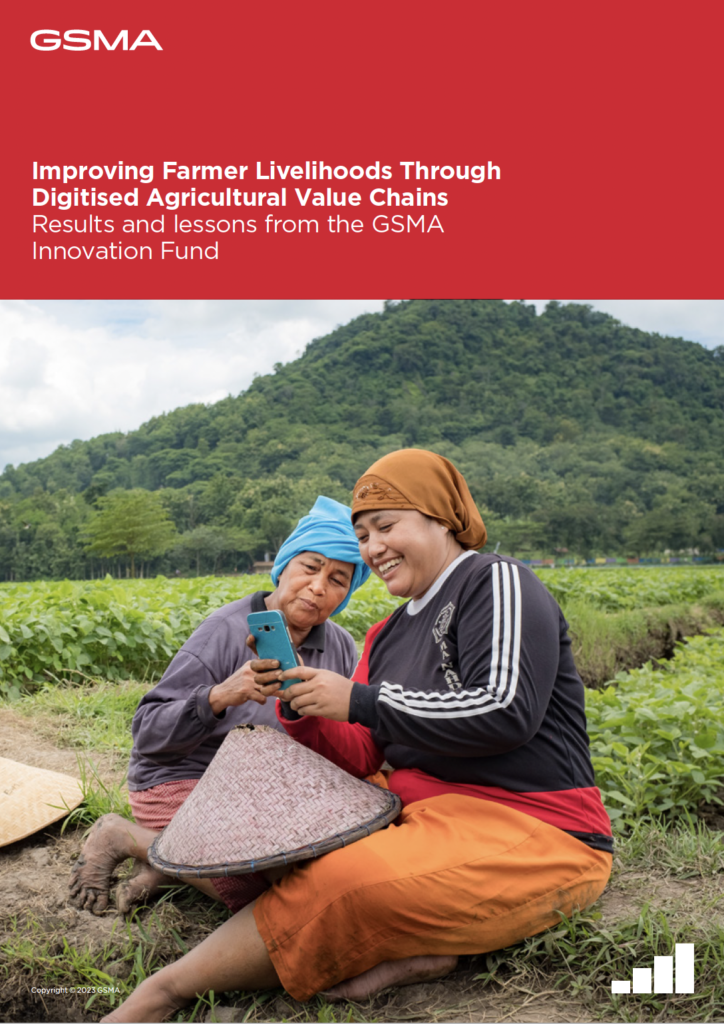





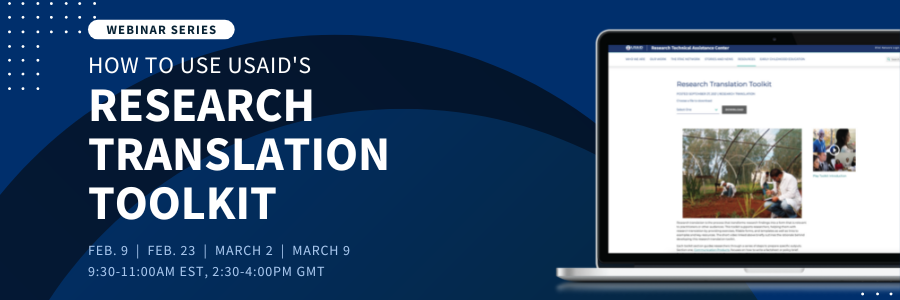





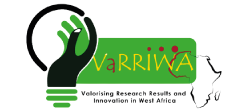






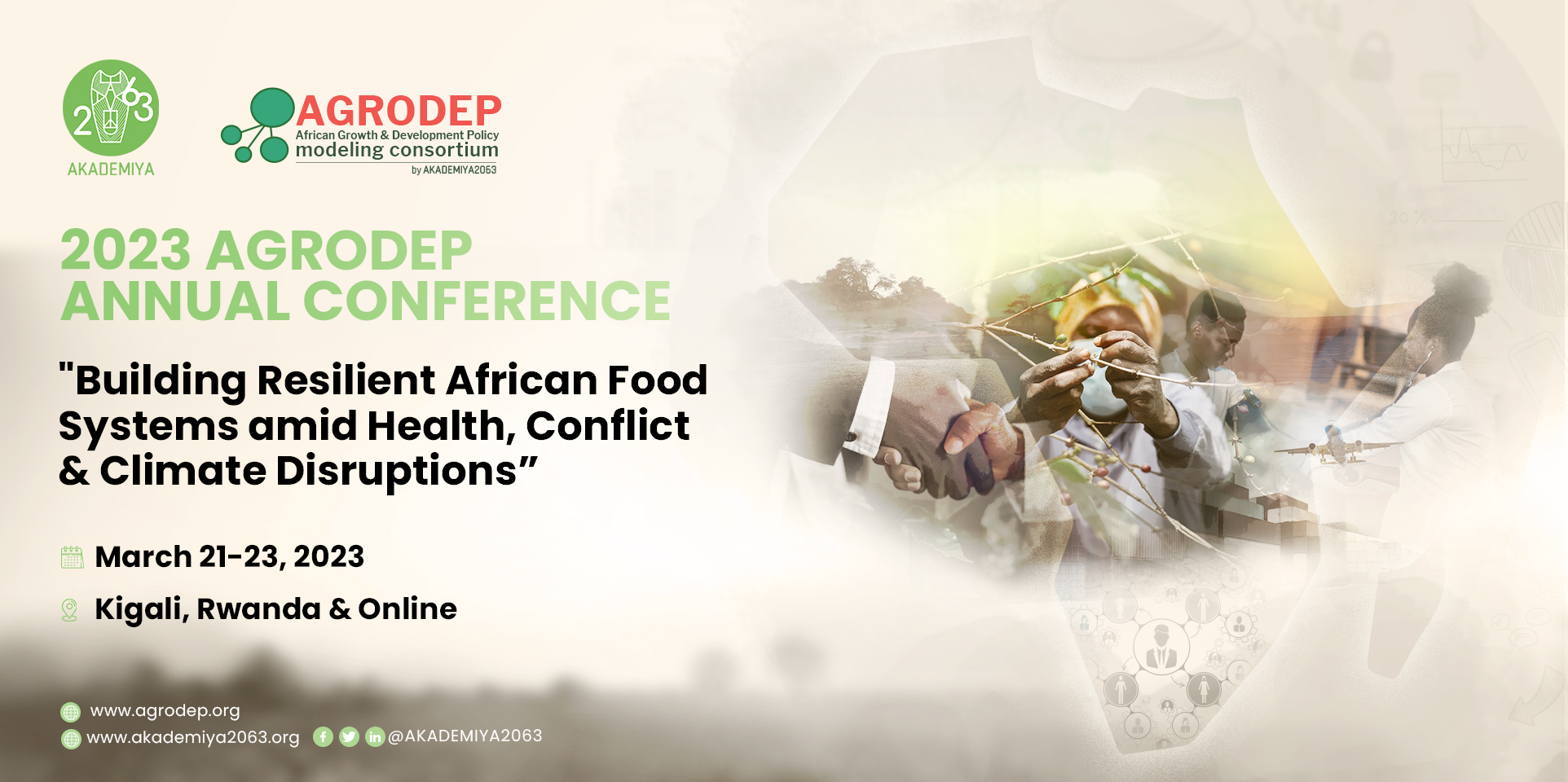
.jpg)



